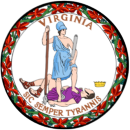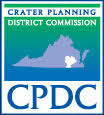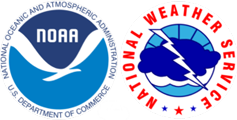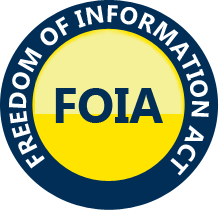
On March 12, 2020, Governor Northam entered Executive Order Number Fifty-One (2020) Declaration of a State of Emergency Due to Novel Coronavirus COVID-19. The Governor noted that the Virginia Department of Health (VDH) has been working with local, state, and federal officials, healthcare and emergency management experts, and various state agencies to form a COVID-19 Taskforce to prepare for and respond to this threat, and that, given recent confirmed occurrences of COVID-19 within the Commonwealth and in neighboring states, as well as information from the Centers for Disease Control and Prevention, it is anticipated that the disease will spread. A state of emergency exists in the Commonwealth of Virginia and efforts of the executive branch are underway to continue to prepare and coordinate its response to the potential spread of COVID-19, a communicable disease of public health threat. This state of emergency became effective March 12, 2020, and is to remain in full force and in effect until June 10, 2020, unless sooner amended or rescinded by further executive order.
On March 13, 2020, the Governor advised that "if you have not already, please continue to review your [Continuity of Operations or] COOP plan. It is critical that you think about essential functions as they relate specifically to the COVID-19 event." Many courts are actively doing so and court users and the public may access information on courts' responses to the COVID-19 emergency online at: http://www.vacourts.gov/. All judges and clerks may access resources and information via the Court's intranet site at: http://oesinet/. Courts that have not alryady done so, should review their continuity of operations plan and consult remotely with local stakeholders.
In 2010, the Supreme Court of Virginia's Pandemic Flu Preparedness Commission issued the Pandemic Influenza Bench Book for Virginia's Court System and it has been available since then to the public and court personnel via the Court's web site at: http://www.vacourts.gov/programs/pfp/benchbook.pdf. It was revised in 2017, and most recently was specifically referenced in emails sent to all judges and clerks by the Executive Secretary on February 26 and March 11, 2020, with information for all courts to use in addressing the current COVID-19 emergency.
On Sunday March 15, 2020, Governor Northam announced a statewide ban on all events over 100 people. In light of the foregoing and the Chief Justice having received today, March 16, 2020, a request from the Governor for a declaration of a judicial emergency in all district and circuit courts of the Commonwealth of Virginia, pursuant to Va. Code§ 17.1-330, this Order declaring a judicial emergency is hereby issued for all district and circuit courts of the Commonwealth to protect the health and safety of court employees, litigants, judges, and the general public. This Order shall be in effect from today, Monday, March 16, to Monday, April 6, 2020, and it is hereby ORDERED that NON-ESSENTIAL, NON-EMERGENCY court proceedings in all circuit and district courts be and hereby are SUSPENDED and all deadlines are hereby tolled and extended, pursuant to Va. Code§ 17.l-330(D), for a period of twenty-one (21) days, and all circuit and district courts shall implement the following measures absent a specific exception as listed below:
- Continue all civil, traffic and criminal matters, including jury trials, subject to a defendant's right to a speedy trial, with the exception of emergency matters, including but not limited to, quarantine or isolation matters, arraignments, bail reviews, protective order cases, emergency child custody or protection cases, and civil commitment hearings. Judges may exercise their discretion with regard to proceeding with ongoing jury trials, and in cases where the defendant is incarcerated.
- Continue all ceremonies, such as juvenile licensing ceremonies.
- Limit courtroom attendance to attorneys, parties, and necessary witnesses and members of the press in any matters that cannot be continued.
- Issue summonses in lieu of a capias for failure to appear.
- For jury trials that cannot be continued, excuse or postpone jury service for jurors who are ill, caring for someone who is ill, or in a high-risk category as defined by the Center for Disease Control (CDC).
- Suspend new juror orientations.
- Require attorneys to use e-filing if available.
- Require individuals with legitimate court business who are ill, caring' for someone who is ill, or is otherwise in a high-risk category, as defined by the-Center for Disease Control (CDC), to call the local clerk of court ·or other appropriate court personnel to request an appropriate accommodation.
- Consult with the locality, including the sheriff, about posting signage at all public entry points advising individuals not to enter the building if they have:
- visited China, Iran, South Korea, any European countries, or any other high-risk countries identified by the CDC in the previous 14 days;
- traveled domestically within the United States where COVID-19 has sustained widespread community transmission;
- been asked to quarantine, isolate, or self-monitor by any doctor, hospital, or health agency;
- been diagnosed with, or have had contact with anyone who has been diagnosed with, COVID-19;
- a fever, cough, or shortness of breath; or
- resided with or been in close contact with any person in the above-mentioned categories.
Individuals attempting to enter the court in violation of these protocols may be denied entrance by a bailiff or court security officer, and may be directed to contact the c.lerk's office by telephone or other remote means to inform the clerk of their business before the court so as to receive further instruction regarding alternate arrangements for court access. - Consult with the sheriff and/or bailiffs to prohibit individuals or groups from congregating anywhere in the courthouse, and to require social distancing throughout the courthouse, including inside the courtroom.
- Use telephonic or video technology, as provided in the Code of Virginia, for all necessary hearings, trials, or other matters, including arraignments.
Nothing in this Order shall preclude the chief district and chief circuit judges from implementing additional local policies as needed. Except as provided in this order, to the extent possible, the courts and clerks' offices shall remain perational and provide essential services while balancing the health and safety needs of court visitors and personnel. This Order shall be effective from March 16, 2020, to April 6, 2020, This Order may be extended for additional periods not to exceed 21 calendar days or for the duration of the threat, by a majority of the justices of the Supreme Court to mitigate the risks potential spread of COVID-19.











 Made in the U.S.A.
Made in the U.S.A.